Pieces of A Broken Reality
The brittleness of this moment is laid bare. How we thought reality was has been pierced.
Dismantle (verb)
dis·man·tle
Take to pieces.
To come apart.
Dismantling is usually the trade and craft of an engineer or a mechanic or designer but is now also the job of a ‘Useful Idiot’ and his man-child techno-delusionist sidekick. This moment calls for us to understand the component pieces of the trajectory of all species - not just ours. Suddenly the brittleness of just about everything is apparent. Sustainability professionals may be among the best prepared for this moment though. The constant necessity to straddle the worlds of planetary calamity that requires rapid and urgent action of unprecedented forms and scale, BAU organisational contexts that are vested in the maintenance of BAU, and our own competing inner states of panic, fear and insecurities while also looking to enjoy the experiences of family, friendships plus the benefits that modern life affords us. Quite the juggle.
This additive process - always putting more into the mix, always looking to adjust and fit the latest puzzle piece onto an already full board - is exhausting. It also hides what is in plain sight - what if a dismantling is what is required? What if trying to fit the available pieces is just a trap? Often we don’t realise how habituated we are to our own context - the next thing will create the breakthrough. Maybe it’s the story that if I just get through this day or this week or this month or this year, it’ll then be able to change. More often then not it’s only when we hit a proverbial wall that we realise substantial change is not only necessary, but possible. An illness, a death, a redundancy, a relationship breakdown, a work failure. An event occurs that pierces the fabric of our reality and suddenly everything is up for grabs.
Terror is the normal reaction to this. How could it not be? But what if dismantling was a process that could be organised and undertaken in an orderly fashion? Maybe that’s just hopeful - a fantasy - and we need the crisis to spur us? In my experience, only despair has created a willingness to (finally) change.
We’ve all had our versions of crisis and disaster in our personal life. These are awful, but can become periods of remarkable transformation. Maybe the sustainability profession needs the same thing. A crisis of confidence and language and viability and relevance is underway in our industry. Either due to political pushback or because the reality of ongoing environmental and societal degradation occurs no matter how many sustainability programs exist or impact initiatives are launched or disclosures disclosed. What if those efforts are just entirely wrong? What dismantling do we as individuals and as a collective need to reckon with to alter the trajectory of the future? Instead of relying on more frameworks or disclosures or assessments or materiality processes, what could we rely upon? And what dismantling needs to occur to allow that to become a possibility?
I’ve been forced into despair a few times. I remember the devastation of my grandparents moving on when I was four and 11. A beloved cousin died of sudden adult death syndrome when I was 19 and she was 25. My other grandmother in my 30s. The loss of the comfort and identity of a marriage and a family. A multi-year work project abandoned on a whim. You’d have your own version of this despairing list of devastation. To live is to feel pain. Are we - as sustainability professionals - willing to stare into the mirror of accountability and be in The Pain? To use the piercing of what reality seemed to be to clearly appreciate a new one with honesty and fresh perspective?
This week Ningaloo Reef bleaches. Last week DOGE scuppered US climate science. Last month LA revealed the future. Last year we put on our 2000 Olympic Speedo swimsuits and broke climate record and climate record.
Reality is painful. I know. It spurred new growth. It offered what was previously impossible. It closed the gap of intention to action. The gift of desperation.
Now, in this moment, bullies run rampant and cowards are revealing their weakness and cynicism and capture by vested interests - The Emperor Wears No Clothes. To fight, to freeze or to run? My impulse is to fight. Usually and often that has been problematic and a setback professionally. The Emperor’s (vested) interest has always trumped funding a sustainability strategy properly, measuring the adverse human rights impacts of corporate decisions (despite their commitment that human rights consideration underpin every decision), curating renewable energy services and protecting regular folks from a sector where 33% of solar installs don’t work the way they should from the day their installed.
To freeze is to avoid reality. To run is to escape reality. At least in the fight it’s possible to discover reality.
See ya in the pit.
Oliver Dykes is Burning the Old Maps & Finding New Paths: Design, Power and Responsibility
Oli is a professional of repute. He pursues work of meaning with the highest of integrity and has experienced his own bumps in the road the past few months. I thought he'd share about that, instead he’s written one of the most eloquent and rich depictions of what a full life transformation involves and gifts.
The Duality of Design
Creativity and by extension, design, is often seen as a constructive, additive, and improving process. It can also be deeply destructive. To create something new, something else must be dismantled. When the first yoke was designed for the ox, it didn’t just create more efficient farming; it dismantled and restructured humanity’s relationship with nature from one of kinship to one of domination. When we design new technologies or systems driven by doctrines of efficiency or scale, we often deconstruct jobs, livelihoods, and even landscapes. Every act of creation carries with it a potential act of destruction. The question is: What are we choosing to deconstruct, and what are we choosing to create in its place?
Consider the invention of the automobile. While it revolutionised transportation, it also dismantled entire ecosystems, segregated communities, and entrenched a fossil fuel-dependent economy. Or take the rise of digital platforms: they’ve connected us in unprecedented ways, but they’ve also eroded privacy, destroyed local economies, and concentrated power in the hands of a few corporations. Those of us with the privilege to create new futures, whether as designers, engineers, policymakers, or sustainability professionals, have a responsibility to consider what is being destroyed in the process. Creation is not neutral; it is an act of power, and with that power comes responsibility and, ideally, accountability.
This tension between creation and destruction has been a recurring theme in my life, both personally and professionally. It’s a tension that has forced me to confront my own values, worldviews, and ways of being in the world. And it’s a tension that I believe we must all grapple with if we are to build a future that is just, equitable, and sustainable.
A Personal Dismantling
I grew up in Scotland, a place that shaped my early values: fairness, resilience, community and a connection to nature that felt rooted in care and respect. But when I moved to Australia, I was no longer home. What did it mean to make Australia home? It soon became apparent that my understanding of this new home was incomplete. The history and culture of this continent, shaped since the beginning of time by Aboriginal and Torres Strait Islander stewardship, was largely absent from the narrative I had inherited. This wasn’t just a gap in knowledge; it felt like a hidden and unjust part of the story, one that needed attention and space to uncover.
I wanted to open myself up to learning and change, not just out of curiosity but out of a growing sense of responsibility. As someone who has had the privilege to design and shape organisations, policies, technologies, and services that have likely touched the lives of all Australians across finance, healthcare, taxation, housing and more, I knew I had a role to play in addressing this imbalance. I needed to understand what I was constructing and deconstructing. I couldn’t ignore the fact that the systems I worked within, and sometimes contributed to, were built on a foundation that extracted, suppressed, and excluded those with the quietest voices, both human and more-than-human. The very people who had cared for this land for millennia so rarely got to shape and create these systems. Was my participation in this system perpetuating the status quo, or could I help open up new possible futures and ways of being? This realisation set me on an ongoing journey of decolonisation, one that has profoundly reshaped how I see myself, my work, and the world around me.
This journey has been a process of unlearning and relearning, of deconstruction and rebuilding. It has meant confronting the extractive, dominant, human-centric and growth focused mental models that I, like so many of us, had internalised. It has required me to slowly compost the parts of myself that no longer serve me, so that I can cultivate new seeds of understanding and connection.
When I received my Australian citizenship, I was in the privileged position to be able to take 18 months off work to explore this beautiful continent. We had intended to do it when I arrived but ended up working for eight years, so now was the time. During that time, it was the deepest of privileges to spend time on Country, listening and learning from Aboriginal and Torres Strait Islander Elders and custodians. I walked through rainforests and learnt about the foods and relationships between the trees, the animals, and the seasons from Elders on Kuku Yalanji Country. I listened to creation stories around the fire on Adnyamathanha Country. Shook a leg and danced in the dust on Duwa Country and spent weeks in solidarity with Wangan and Jagalingou custodians as they fought to protect their Country and Culture from the Carmichael coal mine. These experiences, among many others, were humbling and transformative. They helped build and experience a worldview that sees humans as part of nature, not separate from it, a world where you practice and feel everything is in relation, where everything has a vital role in the patterns of life, and where we, too, have a role to play.
It’s important to carry your own load through this journey. I made sure to take the time to immerse myself in books, podcasts, movies, and music that share what can be shared of Country and Culture. I took the time to learn about the history of this continent, both recent and ancient, and to try and understand the profound wisdom embedded in Country and First Nations Knowledge. Their wisdom, honed over millennia, is so often offered as a gift, if we are willing to accept it with reciprocity, not extraction. It is arguably the foundational model for what we all need to live in harmony with nature, one that we urgently need in the 21st century. To two eye see or walk in two worlds will be a critical foundation to transitioning through this century.
As this journey has progressed, I’ve integrated these lessons and experiences into my daily life, shifting my practices, rituals, and ways of being. I talk to the birds more, saying hello and asking how they are. You might say I am mad but it feels right when they are your neighbours. Beautifully, even though I am 15,000km away from my other home in Scotland, it has also brought me closer to my own Scottish identity, culture and indigeneity. The living aspect of Aboriginal and Torres Strait Islander culture has lit a flame, to not let go of my own, to rebuild these patterns and ways of being in authentic and contextually sensitive ways. To see and feel a staunch and living First Nations Culture has helped me re-see and re-weave the threads of my own, in new ways, in a new home.
But this is also confronting. As you peel back the layers, it can unleash deep sadness, even anger for your own culture, your own history, for something that feels missing or like it has been taken. As you grapple with the truth or with the cognitive dissonance of the life you live or the career you’ve pursued. I have felt many of these emotions, and sometimes I still do. But they are part of the journey. This has meant rethinking my work and my professional practice, where I spend my time, what I give my energy to, and how I take responsibility and accountability for the things I help create and deconstruct.
Rebuilding a Professional Practice
This journey has profoundly shaped my professional practice. As a designer, I’ve been fortunate to work on systems, services, policies and products intended to enhance lives. Yet, over time, the cracks in the foundation of the human-centred design approach I once championed became obvious. While it was a valuable tool, it often overlooked the interconnectedness of all life. It became clear that this framework, while well-intentioned, was incomplete.
This realisation didn’t diminish my passion for design; instead, it opened up an opportunity to expand its scope, to reorient my work away from the narrow focus on human convenience and consumption toward ways of being that honour the web of life. A journey through Sustainability, Transition Design, Regenerative Design, Life-Centred Design and ongoing, all sharing the common thread to create systems that actively heal and restore the places we call home. It’s about embracing and designing with principles like diversity, interdependence, reciprocity, and resilience, principles that have sustained life on this planet for millennia.
For example, instead of designing for efficiency, we can design for connection between people, communities, and the natural world. Instead of prioritising individualism, we can champion collective well-being. Instead of chasing endless growth, we can rethink value and shape lives and systems that thrive within planetary boundaries. These shifts aren’t just theoretical ideals; they are practical, actionable, and urgently necessary.
The systems we’ve built - economic, social, technological - are no longer serving us well. They were designed to extract, dominate, and accumulate, and they are remarkably resilient to change. But resilience doesn’t mean invincibility. There are ways for us to dismantle our role in perpetuating these systems and reorient toward what truly serves us.
We must replant and cultivate the practices, values and structures that are in service of all life in the cracks of the old. As we let the roots take hold and enable new ways of being and futures to emerge the once immovable structures will begin to crumble and we must take the responsibility and accountability to deconstruct them with grace and dignity.
Begin Now
The work of dismantling begins with us. By composting the parts of ourselves that no longer serve us, our extractive practices, our human-centric worldviews, our reliance on growth and need for dominance, by seeing these patterns and acting against them we can create space for new ways of thinking and being, for new imagination and possible futures. This is not easy work. It requires us to sit with discomfort, to confront our own privilege, and to question the very foundations of our identities. But it is necessary work. And it is work that will make us better professionals, better allies, and better stewards of this planet.
So, I invite you to join me in this process of dismantling. Start with yourself. Reflect on the values and worldviews that no longer serve you. Seek out the wisdom of others. Challenge the systems you work within, and redirect their energy toward life-giving practices.
Together, we can compost what no longer serves us and plant the seeds of a better future. The journey will be messy, uncomfortable, and at times painful. But it is a journey worth taking for ourselves, for our communities, for future generations and for the planet.
Events
They’re back. The effervescent life force of Finding Nature are back, and right now we have FIVE events locked in.
Seeing The Forest Through The Trees - Picking ESG Data Winners
Confused by and fed up with the proliferation of ESG data platforms that have hit the market and promise the world? Same. We’ll be sorting the wheat from the chaff, sharing wisdom and working out how to pick winners with Rich Griffiths.
26th February, 6pm, Surry Hills
SOLD OUT
Finding Nature Finds Nature - Barrington Tops Cultural Burn Expedition
We’re going to Country, with the remarkable privilege we’ve been afforded to observe and take part in a cultural burn to help return the Bularr-Gulga with the Worimi People.
28th February to 2nd March, Barrington Tops.
TICKET SALES ENDED
Finding Nature Finds Nature - The Gibberagong Track & A Passive House
At the beginning of each new season Finding Nature finds nature. This time we will walk the Gibberagong Track in Ku-Ring-Gai Chase National Park followed by a tour of Chris Nunn’s PassivHaus AND lunch served by gus_tronomy. Real nature, time in and a tour of the first certified Passive House Premium building in NSW followed by excellent food. All with terrific company.
8th March, 9am-1pm, Northern Sydney
Decommissioning Finance’s Dam Barriers for a More Sustainable, Just & Safe Future
What is blocking the transition to a sustainable finance system? The top line benefits are so obvious - a billion in benefits here, even more billion benefits there, trillions if we do this, life as we know it if we actually act as we need to. As part of Sydney’s Climate Action Week we’ll be exploring all the tiny, invisible and absurd reasons finance doesn’t flow. Join us, hear from 150 others in sustainable finance and enjoy lunch together.
11th March, 10am-12:30pm, North Sydney.
Finding Meaning & Being of Service: How Your Unique Design Can Contribute to Climate Action
Stuck in your current role? Wanting to jump ship into the realm of sustainability and impact making? This one is for you. Renowned executive and professional coach Richard Burton will help you get on that journey in re-connecting to your strengths, interests and motivations so you can take your career and impact making to a new level.
12 March, 11am-12pm, Spotify - Sydney CBD.
Whatever Comes Nexts Victoria Whitaker Knows A Reckoning Is Waiting
Victoria is one of the OG’s of corporate sustainability in Australia. For more than two decades she has championed and crusaded for impact. Few are as respected in our game as she is - and for excellent reason. Her insights on the dilemmas and choices we all face are astute and brilliant.
Sustainability is having an existential moment. A backlash has emerged as those with power are being squeezed from their place of comfort. They’ve been asked to undertake a behavioural shift that makes them slightly uncomfortable and to share some of their power with others. That feeling of being disempowered is unsettling. So, those who have enabled the discomfort are targeted.
Sustainability and climate professionals have been left asking: Are we able to create change? Is the change fast enough to prevent the impending calamity that is so obvious?
In this dismantling of the sustainability profession, there are four juxtapositions I observe:
We are questioning our effectiveness in creating change while others question if change is even needed
In recent years many sustainability professionals have been questioning if the changes we’ve pursued and made over past decades are big enough and fast enough to bring about a future that is not just tolerable, but in which people thrive.
They’re not. We know that. The changes made to date, while increasing in scale and pace in recent years, are simply not enough to stave off devastation. We are trying to re-balance our attention and skillsets from a total focus on decarbonisation to how we need to adapt. We are questioning if all our efforts have been fruitless.
There is a special type of devastation that comes with this feeling of failure. We have believed that everyone values dignity, justice and nature - only to realise these are not valued enough to shift behaviours and self-interest.
Pushing against the rising tide of community sentiment to consider our impacts on others, those with the most to lose are revolting. When marginalised groups gains power, the powerful perceive their loss. They begin to question the validity of the underlying ask. They shift from science to belief. After all, the best way to disprove science is to question the underlying methodology and epistemology. They question: is change really necessary?
We want to make sustainability mainstream, but the underlying principles of sustainability become diluted when we do
To achieve the goals of corporate sustainability we must make ourselves redundant, and let everyone upskill in sustainability with the aim of shifting their practice, their worldview and ultimately capitalism as we know it. However, in practice, while many are passionately pursuing sustainability in their careers, its underlying foundations are being reduced, challenged, and warped. While new meaning and language is emerging, it isn’t always well understood, agreed upon or even aligned to sustainability goals.
To maintain integrity in our profession, we increasingly seek to hold ourselves to a high professional standard - a higher moral standard. That’s what a profession is. Members of a profession, like law, accounting and medicine will forego some of the commercial benefits they could have if they held themselves to a lower professional standard. Take medicine, for example, and the hippocratic oath of “first, do no harm”. When doctors are asked to do something that undermines this oath, even for greater revenue, they decline or risk losing their professional status.
While we want to maintain higher standards in our profession, how would we define our profession? What are the moral standards we are upholding? Is it even a profession? Should we want one? Can we both invite everyone in and maintain high moral standards?
Evidence and data justify our impact and thus legitimacy, but we’re drowning in data -- leaving less time for impact.
What gets measured gets managed. To ensure corporates can create impact and affect a whole system we have developed and continue to evolve accounting mechanisms to understand the systemic impact we are having. It’s an important development in giving legitimacy to our work and internalising those externalities that have been ignored for so long. In doing so, we have created an industry of its own. The data expectations are overwhelming. Instead of spending nine months acting and three months reporting, it’s the other way around. We are tripping up in our own need to be diligent that we are barely getting anything done.
People attracted to the sustainability profession typically have a deep sense of purpose. A love and care for nature and a passion for human rights and justice. They are natural systems thinkers, seeing where single actions affect a whole system. Sustainability recruiters look for people with skills in influence and stakeholder management. They look for strategic intrapreneurs. People who identify and chase innovation and who aren’t swayed by the first ‘no’. But with increasing compliance obligations, these same people are now required to navigate the three lines of defense, putting controls in place and forcing their colleague to do things because they have to under new legislation. Less strategy more compliance. Today, a sustainability professional is more akin to a risk and compliance manager than a strategic system innovator. A very different skill set, which is frustrating many.
We are working to change the system from within the system.
In recent years, I have seen a small number of passionate sustainability professionals abandon corporate sustainability life. They can no longer operate within the parody they’ve identified - which is that the system can’t be changed while those with power perceive no benefit in shifting the system. Instead, they have moved to the edges of the system experimenting with new type of economic realities. Early innovators of something that will be hard to scale because of the forementioned power piece, but hopefully something we can all learn from.
For those of us still in corporate sustainability, to achieve scaled impact we need to change the entire economic system. And it’s no easy task. Most sustainability professionals are doing it from within the system. In the past decade, we have seen strong global companies like Unilever and Blackrock place sustainability front and centre to their corporate strategy and with good commercial reason, only for it to be undone in the post-covid economy where high inflation meets cost of living pressures. ESG has been under attack as a concept in the US, spreading to Australia and elsewhere. While the only way to change a system is from within it, the resistance to change is strong, powerful and multidirectional.
While we are living these paradoxes, it is easy to feel that our profession is being disrupted. But we are not the first industry or profession to be disrupted - although others in recent memory might be for vastly different reasons.
With my career sitting at the nexus between sustainability, governance, risk, culture and ethics, I have had the opportunity over the past decade to sit closely by those who have been disrupted - typically falling short of the expectations society has set for them. From cheating and governance failures in sports, to financial services inquiries and the collapse of casinos. My work means that I have had a front row seat as challenges have unfolded. While this is vastly different from the disruption we are seeing in sustainability, I wonder if there are lessons nonetheless on the dismantling and renewal of a profession.
When I have watched an industry or profession being disrupted the first thing that I have observed is a deep look within. Most didn’t see it coming. They thought they were acting with integrity. They were blindsided by their own bias. And for many, the actions were taken by a few and goal posts of societies expectations moved while they were busy working. As a result, they look deeply within and then work collectively to sharpen what they will and won’t stand for.
As a result of the Royal Commission into Financial Services, financial advisors for example, put into place new standards of professionalisation, requiring a vast and diverse industry to retrain and uphold new moral standards. They put new systems and processes in place, making the industry stronger and more trustworthy.
When a company loses trust through a crisis, they do three things to gain legitimacy:
Capability – they look at governance, accountability, culture and risk management and strengthen the business to ensure the correct oversight from the board through the business;
Ethics – they look at their purpose, their values and their principles and focus on developing ethical leadership. They look at the decisions they are making and how they can be strengthened, so their stakeholders are able to see how and why they made the decisions the way they did;
Alignment – they look at the promises they have made to their stakeholders and if they are aligned. There is deep listening and radical transparency, supported by new convincing evidence of positive action being taken.
Isn’t this what is happening with our industry now? We can have comfort or we can have growth. But we can’t have both at the same time. Growth is uncomfortable.
While I am not sure our profession has lost trust amongst the majority because of some malfeasance, it is gaining legitimacy as a profession. The discomfort we have right now is our growth. It is taking us to the next level.
There are fundamental sustainability principles we can continue to hold onto as we ride this tsunami:
Dignity and respect – At the heart of ethics, human rights and sustainability is that people are not a tool for another purpose, but valuable in and of themselves. This principle forbids modern slavery and servitude. It requires stakeholder engagement – the idea that those who effect or are affected by an institution or a decision should have the right to participate fully in that decision.
Do no harm – On balance, we shouldn’t create more benefit than harm. When we do create harm, we should ensure those harmed should be able to assess and manage the risk of the harm. And where they accept risk, be appropriately compensated.
Responsibility – If we derive some or all of a benefit for something, we are responsible also for some or all of the impacts it creates. We need to think about this responsibility across systems, including through time (benefit now, impact later) and space (local v global). We also need to think about power differentials – through an economic, information and political lens.
Honesty – Transparency requires that we share enough information to fully inform the decisions of our stakeholders, but not to flood them with so much information they are overwhelmed. Importantly it also means being honest about the values and principles that have underpinned our decisions, as well as being honest about the level of influence a stakeholder might have in a decision.
Precautionary principle – The science is in. It will never be 100%. We have lots of data. It will also never be 100%. It will continue to evolve. In finance, the data isn’t ever perfect. In medicine, we act when we don’t understand everything. We need to consider what we know, and act based on that evidence even when we don’t know everything. Just get on with it.
At the centre of our profession, made up of gloriously diversely skilled and different people, I think we have three things in common:
We are hopelessly optimistic and hopeful - While I am sure for all of us it is challenging at times, it’s a must or burnout would be front and centre.
We think in systems - Not only technically, but also in our relationships and networks.
We are innovators - Many of us are comfortable treading a path that isn’t clear. Jobs have emerged each year that didn’t exist the year before.
As our field evolves, I think there is still a role for the pioneering sustainability professional, scanning the horizon, seeing what’s coming, sitting comfortably and with hope in the discomfort.
Not All Heroes Wear Capes - Zack Schofield Is Organising New Futures
This chat was one of the most awe-inspiring experiences of my career. Zack Schofield is courage and integrity personified. He’s also doing real things to address the real ever-increasing emissions problem.
Jimmy Stanton-Cooke Dismantled His Beard and Created A Movement
Jimmy HALFCUT is as real as they come. Going from despair to desperate action he’s created one of the most recognisable impact organisations in the country in just five years. Half the forests are gone and so is his beard. Mine will be in 2025 too.
Dismantling isn’t just about breaking something down. It’s about making space for something new. A new way of thinking, a new way of being, a new way forward. Sometimes, we choose to dismantle. Other times, it’s forced upon us. Either way, it’s messy. It’s uncomfortable. And it can be the best thing that ever happens to us.
For me, it all started with a beard.
When I learned from a National Geographic article in 2017 that half the world’s forests were gone, I couldn’t avoid the fact that we were in a climate catastrophe spiral and heading toward a minimum of 1.5 degrees of warming. And deep down, I knew governments and corporations didn’t care. That realisation hit hard. Furious, helpless, and desperate for change, I decided to make a peaceful yet disruptive protest—to start conversations about conservation. And what better way to do that than to cut my beard in half? Suddenly, instead of handing out flyers and petitions, people were coming directly to me to ask why. I was angry at the state of the world, but I was also curious—because people were actually listening.
You know what? I knew something had to change. Our planet is in crisis. Our rainforests—the lungs of the Earth—are being destroyed at an insane rate. Species are disappearing. Traditional Owners are being locked out of their own land. And most people? They have no idea it’s happening.
The Experience of Dismantling – Forced or Voluntary?
I didn’t wake up one day thinking, You know what? I’m going to shave off half my beard and start a global movement. But I did wake up knowing that something had to change.
So, I made a choice. A small, ridiculous, in-your-face choice. I cut off half my beard. Voluntarily. But what followed? That was a dismantling I never saw coming.
Because when you do something bold, people notice. When you disrupt the norm, people ask questions. And when you start answering those questions with the truth—that our planet is in trouble, that our rainforests need urgent protection, that Indigenous communities should be leading the way—people start listening.
Lessons from Dismantling
Dismantling forces you to confront the uncomfortable. It’s not just about what’s being removed—it’s about what’s being revealed underneath.
For me, it wasn’t just a beard coming off. It was an identity shift. It was stepping into something bigger than myself. It was realising that discomfort—whether it’s personal or collective—isn’t something to avoid. It’s something to harness.
I learned that people want to be part of something that matters. They just need a way in. And sometimes, the way in is a bloke with half a beard, standing in front of them, asking, Are you HalfCut yet?
Would This Have Happened Without Crisis?
No way. If everything had been fine, if the rainforests weren’t being bulldozed, if Indigenous land rights weren’t being ignored, if the climate wasn’t spiralling into chaos—there wouldn’t have been a need to do this.
But crisis creates urgency. It forces action. It demands that we stop pretending everything is okay and start asking, What are we going to do about it?
And that’s the thing about dismantling—it’s often born out of necessity. When things aren’t working, when the system is broken, when the way forward is blocked, sometimes the only solution is to take a sledgehammer to what’s standing in the way.
Lessons for Our Profession
Sustainability professionals—we’re in the business of dismantling. We have to be. The systems we’re trying to fix weren’t built to last. They weren’t designed for balance, equity, or long-term survival.
We can’t just tinker around the edges anymore. We need to tear down the structures that got us into this mess in the first place. The way we do business. The way we value nature. The way we include—or exclude—Indigenous knowledge.
This isn’t about making sustainability more palatable for corporations. It’s about demanding they change. It’s about shifting power. It’s about making sure that the solutions we put forward aren’t just band-aids on bullet wounds.
Because if we keep playing by the old rules, we’ll keep getting the same results. And we don’t have time for that.
What Dismantling Does Sustainability Need?
The idea that growth = success. Infinite economic growth on a finite planet is a death sentence. We need new measures of success—ones that prioritise life over profit.
The exclusion of Indigenous leadership. The people who have been caring for this land for tens of thousands of years should be the ones leading restoration efforts. Period.
The illusion that ‘small actions’ are enough. Individual actions matter, but we need systemic change. We need governments and corporations to be held accountable.
The fear of discomfort. Change is uncomfortable. It should be. If it feels easy, it’s probably not real change.
The Opportunity in Pain, Crisis, and Dismantling
Dismantling creates space. It forces us to ask: If not this, then what?
It’s in crisis that people come together. It’s in pain that we find our purpose. It’s in dismantling that we discover what was worth keeping and what needed to go.
For me, it was about dismantling the idea that one person can’t make a difference. That’s a lie. One person can start something. One person can inspire others. And when enough people step up, that’s how movements are born.
Suggestions For Dismantling
If you’re in the middle of your own dismantling—whether it’s personal or professional - here’s what I’ve learned:
Lean into the discomfort. It’s telling you something. Listen.
Don’t try to rebuild too quickly. Let things be broken for a while. Sit with it. Clarity comes in the stillness.
Find your people. Dismantling alone is brutal. Surround yourself with those who get it.
Expect resistance. People cling to what’s familiar, even when it’s harmful. Keep going anyway.
Celebrate the small wins. They add up. They keep you moving.
Remember why you started. When it gets tough (and it will), hold onto your ‘why’.
Dismantling is never easy. But it’s where transformation begins.
Lastly
What started with half a beard became a symbol. A way to say, I’m here, I care, and I’m ready to take action. It became a movement. It became a way to connect, to educate, to dismantle old ways of thinking.
And now? It’s not just me. It’s thousands of people stepping up, choosing to be HalfCut, choosing to fight for something bigger than themselves.
Because when we dismantle what no longer serves us, we make room for something better.
And that? That’s how real change happens.
Introducing: The Encroaching Apocalypse or A Glorious New View
Part of the motivation to create Finding Nature was to write. Maybe it’s the memory of my year 10 English teacher my Mum went to battle with about my choice for going into the advanced class as I began my ‘serious’ studies, or maybe it’s just because I enjoy writing - but I wanted to write more than emails and bland papers. If you’re getting this email you’re getting the posts already. I want to express my take on the climate crisis, and whether we can avoid total calamity. As the father of a three year old I need to believe there is a path to a glorious new view. I’m looking for it.
Discovering The End Times - Kristie Huthnance Paid Attention in a Mandatory Training Course
It’s one thing to be a Born Sustainability Professional Masochist, it’s quite another to spot the struggle and to feel compelled to join the cause. Kristie Huthnance has done just that. She’s a model of the humility, curiosity and clear sighted intention I think we need for those joining our efforts.
First things first: I am a non-financial risk leader in the financial services industry.
My dismantling started at a mandatory corporate training session on climate change. On Teams.
As usual, I was planning on multi-tasking during the training: catching up on emails, checking status of projects - all the usual stuff we do on Teams calls. But as the training progressed I found myself multi-tasking less and less until I was focussing completely on the presentation. The story was getting worse, and worse.
At the mid-way point, the presenter asked if there were any questions or comments. I raised a virtual hand:
“So, what you’re saying, is that we are all doomed’.
He laughed and told me to wait until the end of the training as he was sure I would find some hope.
The session ended. We were still doomed. But the BAU of my career and life trajectory was interrupted.
It wasn’t the first time I’d seen some climate data. I was already a “believer”. But a comprehensive overview of the data, and the impact, in one session? My stomach dropped.
I have to do something. What sort of future will my daughter have?
As a risk professional, it’s impossible to see an inevitable disaster approaching and do nothing to prevent the severity of the impact.
What is the inherent risk? What are the preventative and detective controls? What is the residual risk?
I had spent a career in banking and finance, making a few, miniscule choices in my personal life to reduce impact on the environment and communities. I had no idea how I could make any material impact, personally or professionally.
The message from the internal ESG team said, “Sustainability is everybody’s job”. But the word “climate” wasn’t in the risk taxonomy. There were no controls to prevent or detect modern slavery in the control framework. How was this MY job?
I was changed in that training session. But it meant dismantling what I thought the rest of my career was going to be.
I sat in the discomfort of not being the expert and started learning.
I looked at my personal life, professional life, skillset and experience. I looked at each part, piece by piece.
Can I use my legal skills to support sustainability? Driving regulatory change programs? Do I need to start again and get an Environmental Science degree?
I started meeting with ESG subject matter experts: from Carbon Accountants to Private Equity firms to Energy Infrastructure lawyers. I joined RIAA, WiSF, went to the Purpose conference, trying to piece together a new career direction, while leveraging the career I’d already developed.
I thought I would have to start again.
But what I found, largely, were silos.
Sustainability subject matter experts, who delivered sustainable fuel sources in developing countries, hired into large financial services organisations, and were expected to understand complex financial services regulation.
Experienced financial services employees with a desire to make a difference, but without any idea of sustainability frameworks or the commitments under the Paris Agreement.
The silos need to be dismantled.
Sustainability needs to be built into the fundamentals: job descriptions, business targets, training and education, risk registers, controls, reporting and business opportunities.
Sustainability needs to reduce risk, reduce costs, improve efficiencies or make a profit for it to be truly embedded and unable to be cut due to a change in government priorities or a new CEO.
The change management needs to change. Presenting the facts of climate change, rising inequality, and poor governance isn’t enough to interrupt the way things have always been done.
Just as Financial Crime needed new competency and risk management tools, so too does ESG risk.
So for myself, I’ve put the pieces back together. The old pieces, some new pieces, put together in a new way. Now I can bring my risk, compliance and governance expertise in highly regulated environments to Forestry Stewardship Council compliance, driving and tracking decarbonisation plans, or re-designing a framework for home loan borrowers facing financial hardship.
I am still sitting in the discomfort of needing to learn and grow.
We are still doomed.
But that hit of new information and dismantling my career, has brought new connection and a new path, with a little more hope.
The Garbologist Has Your Waste Prescription - Bel Chellingworth is Pursuing Circularity
The problems of waste are problems of over-consumption, mindless consumption and the structural necessities of consumption. Bel Chellingworth has a vision beyond endless diversion and litter clean ups. This was fun, and she helped me pierce my own avoidance of The Waste Issue(s).
Thank you for getting this far. I love this work. I hope you do too. If you do, please share it wide and far, that’d mean the world to me.





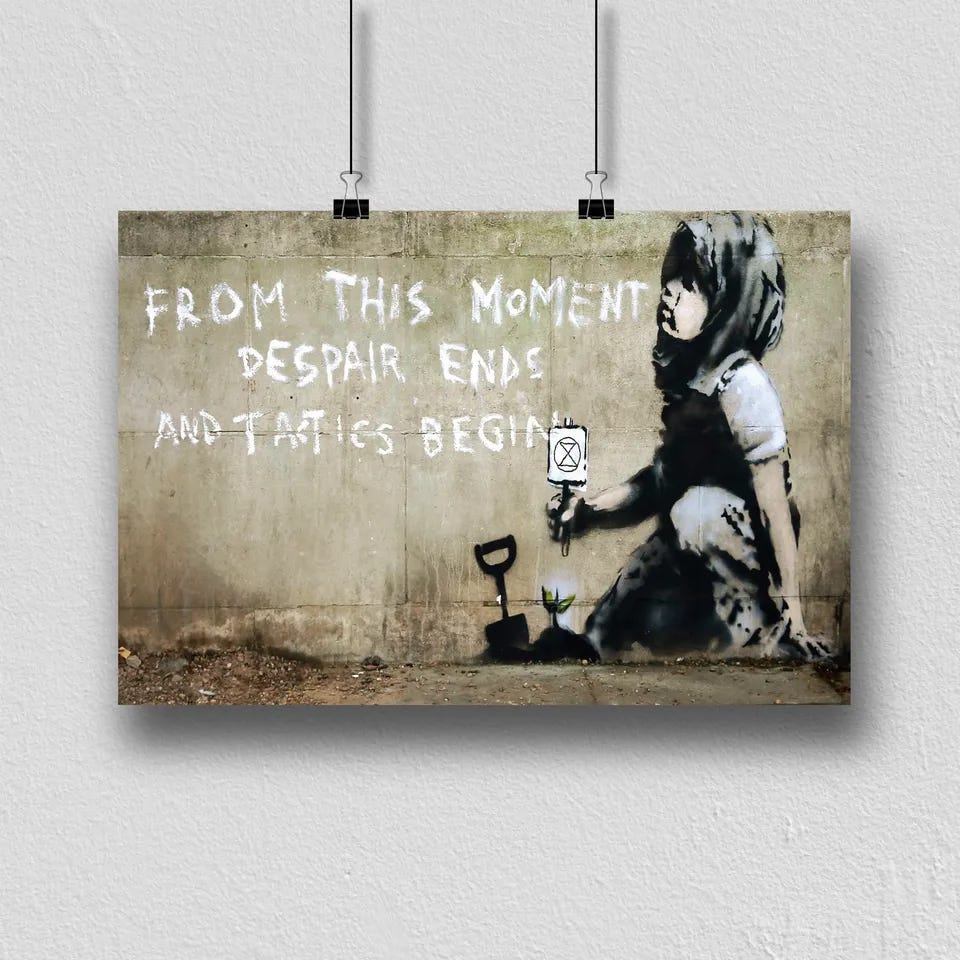



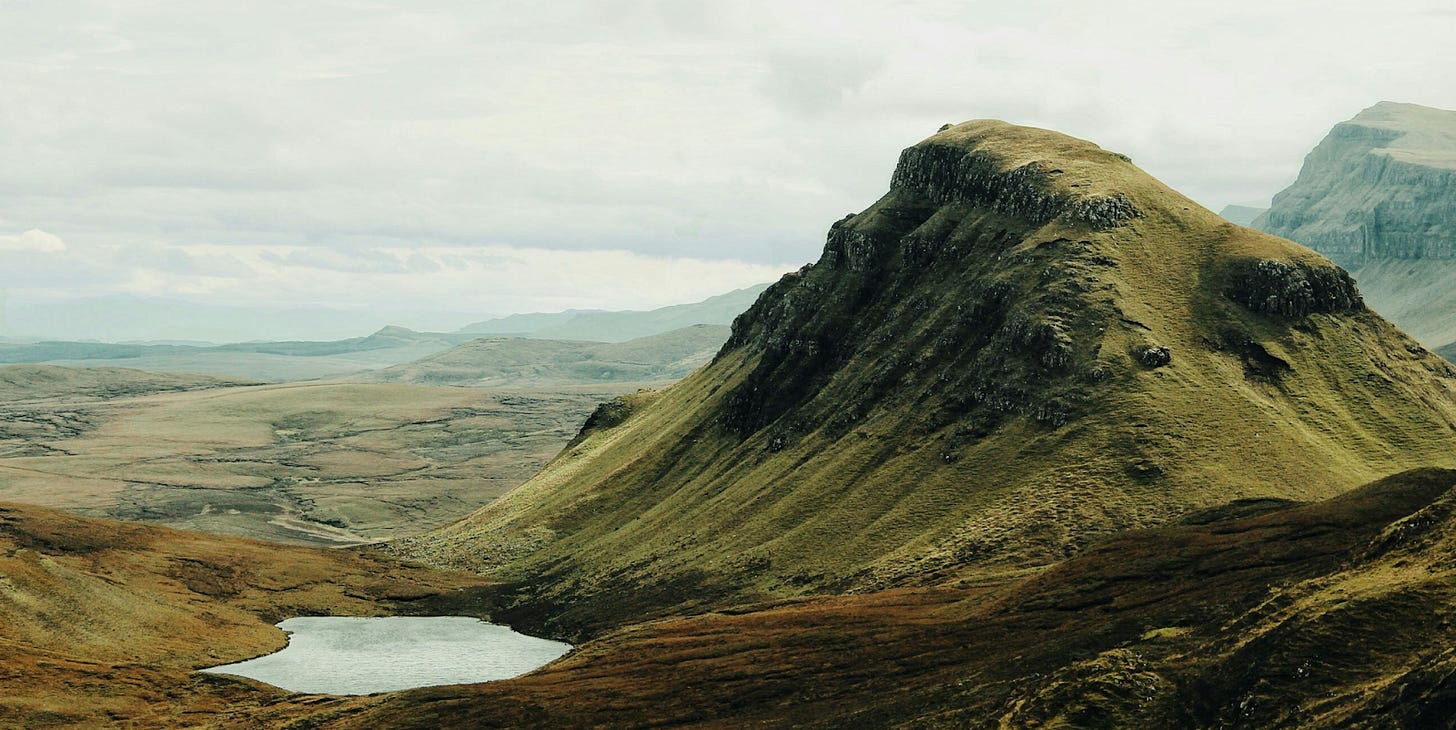


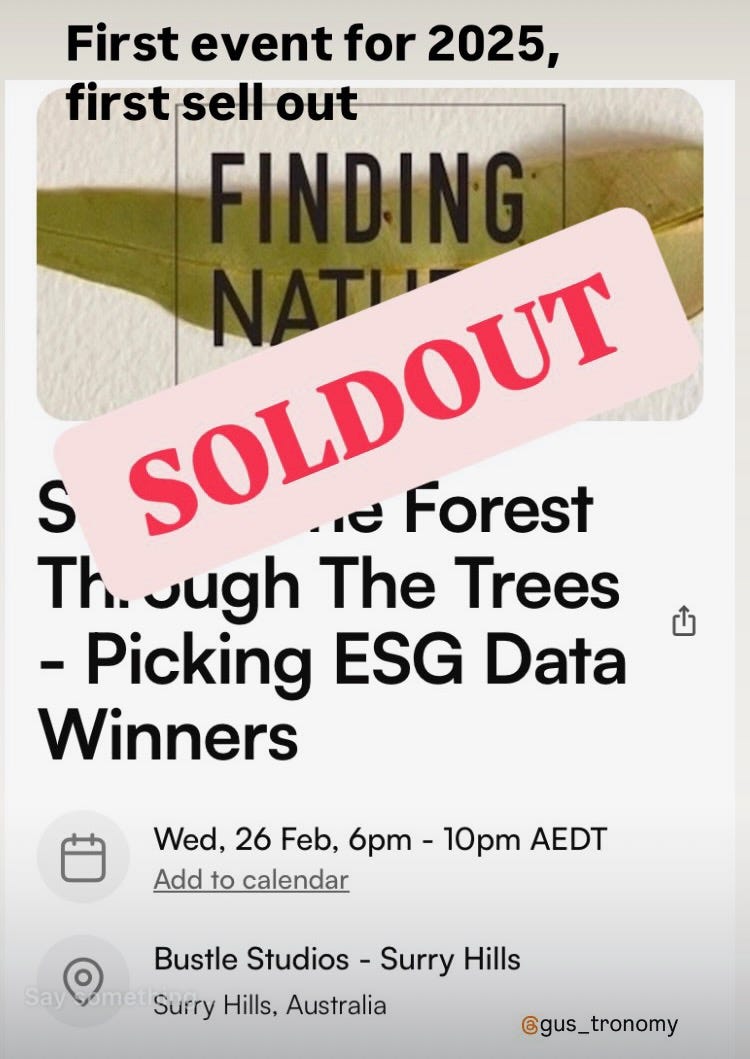
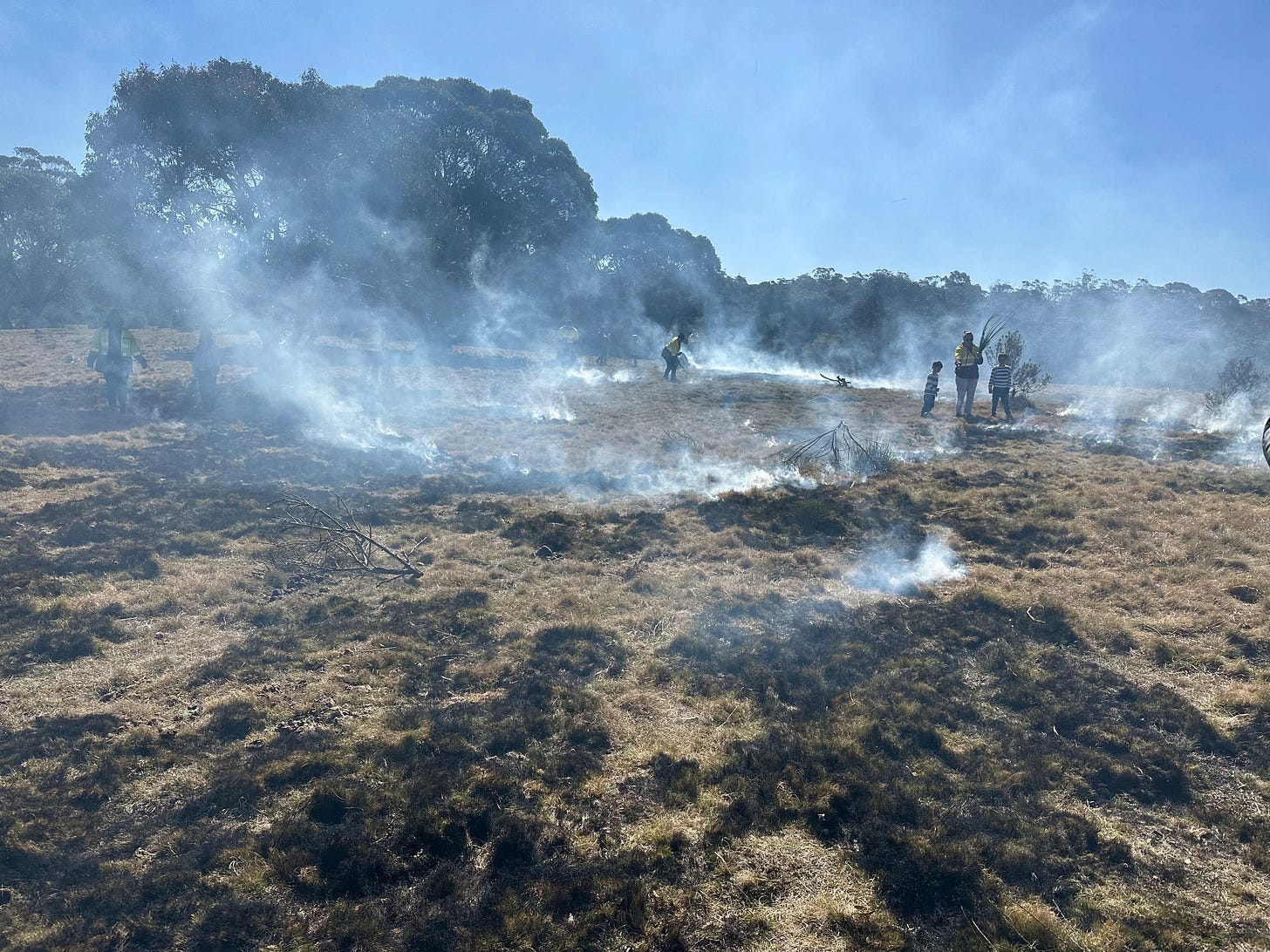
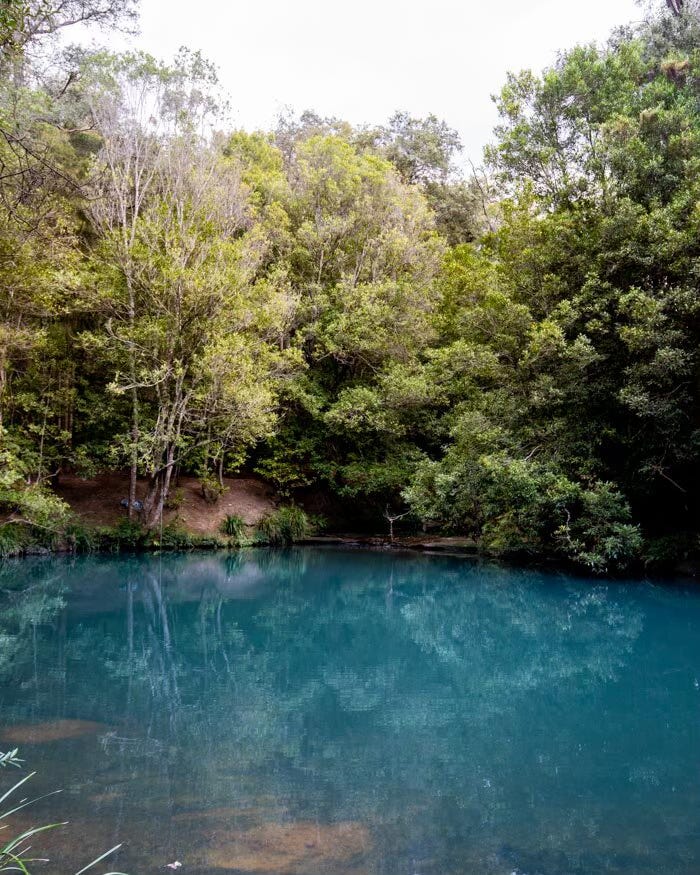

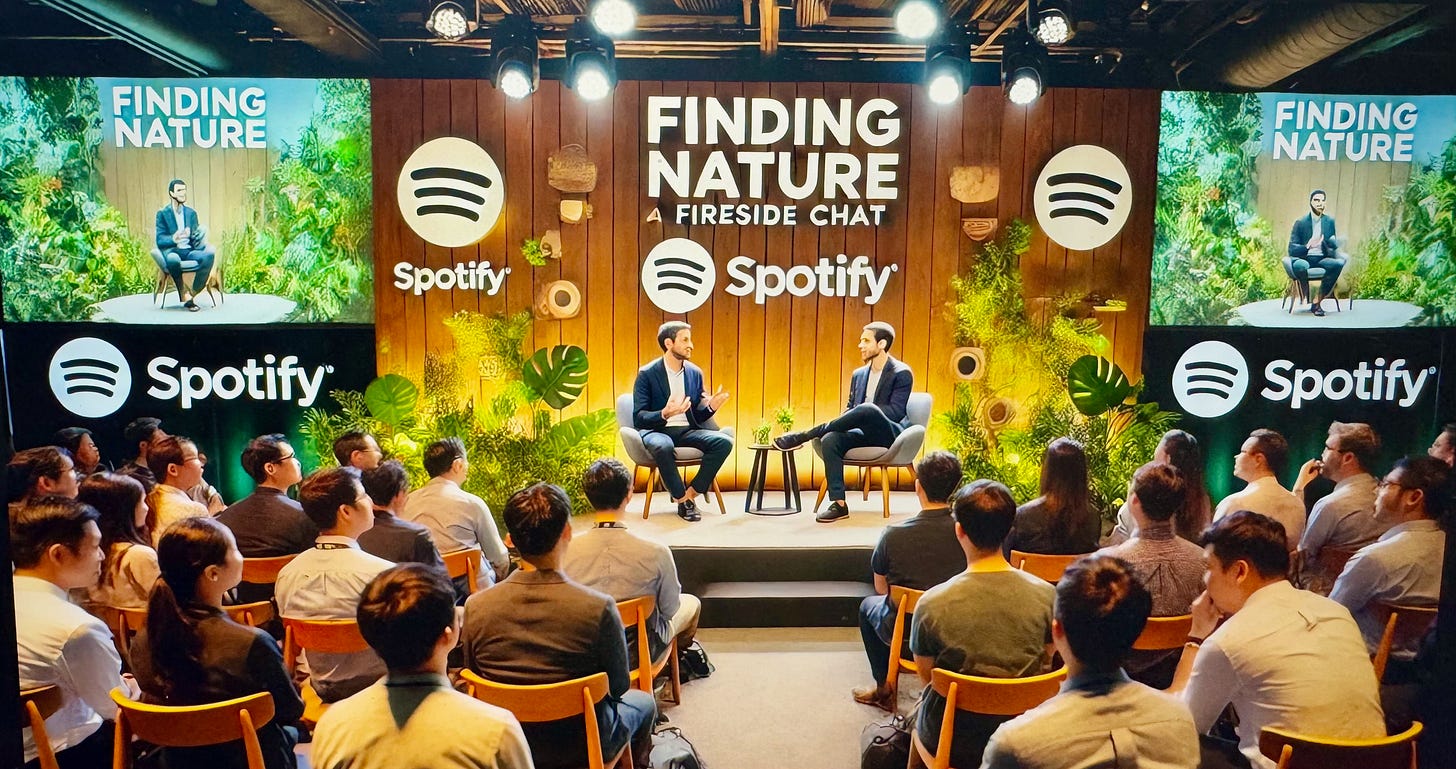

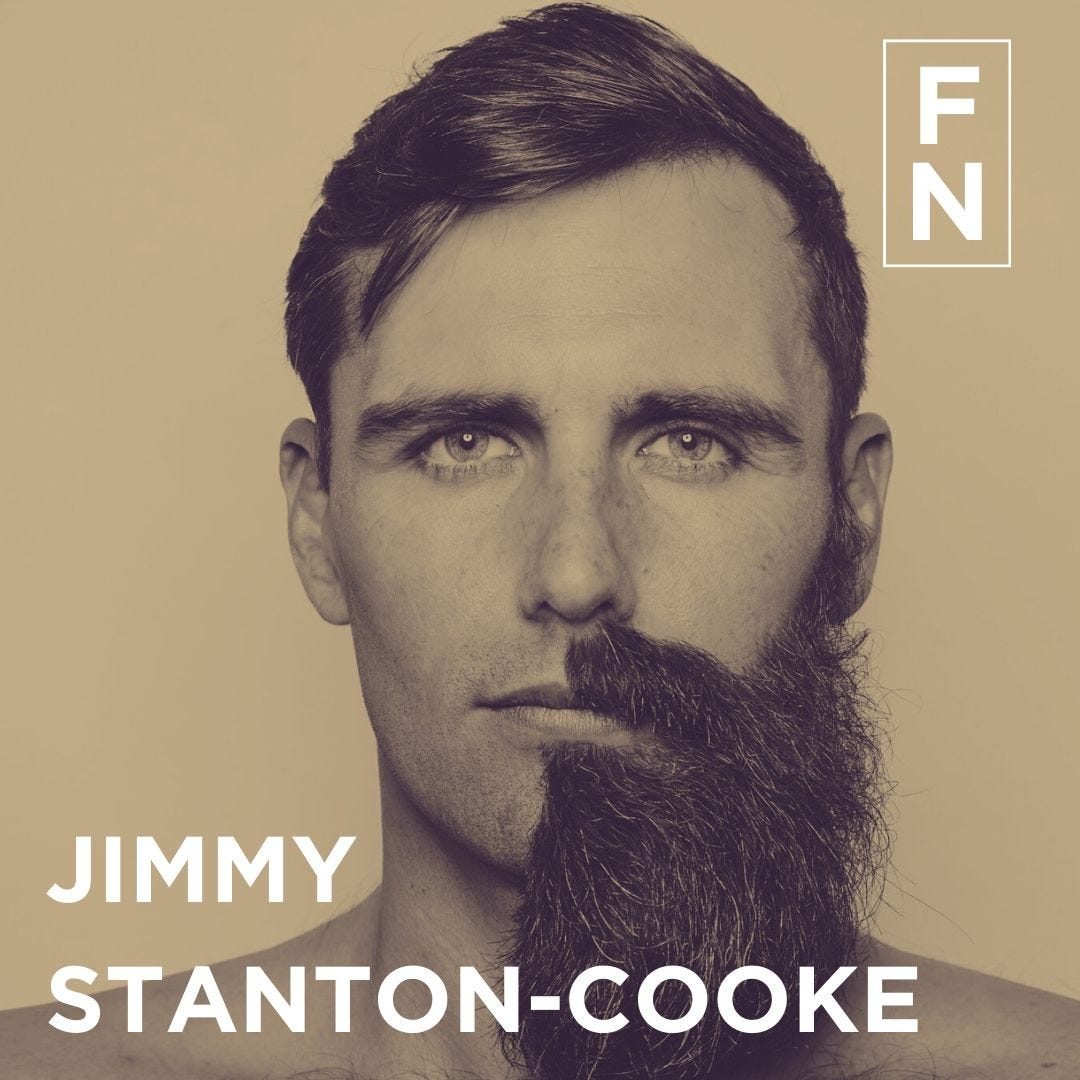
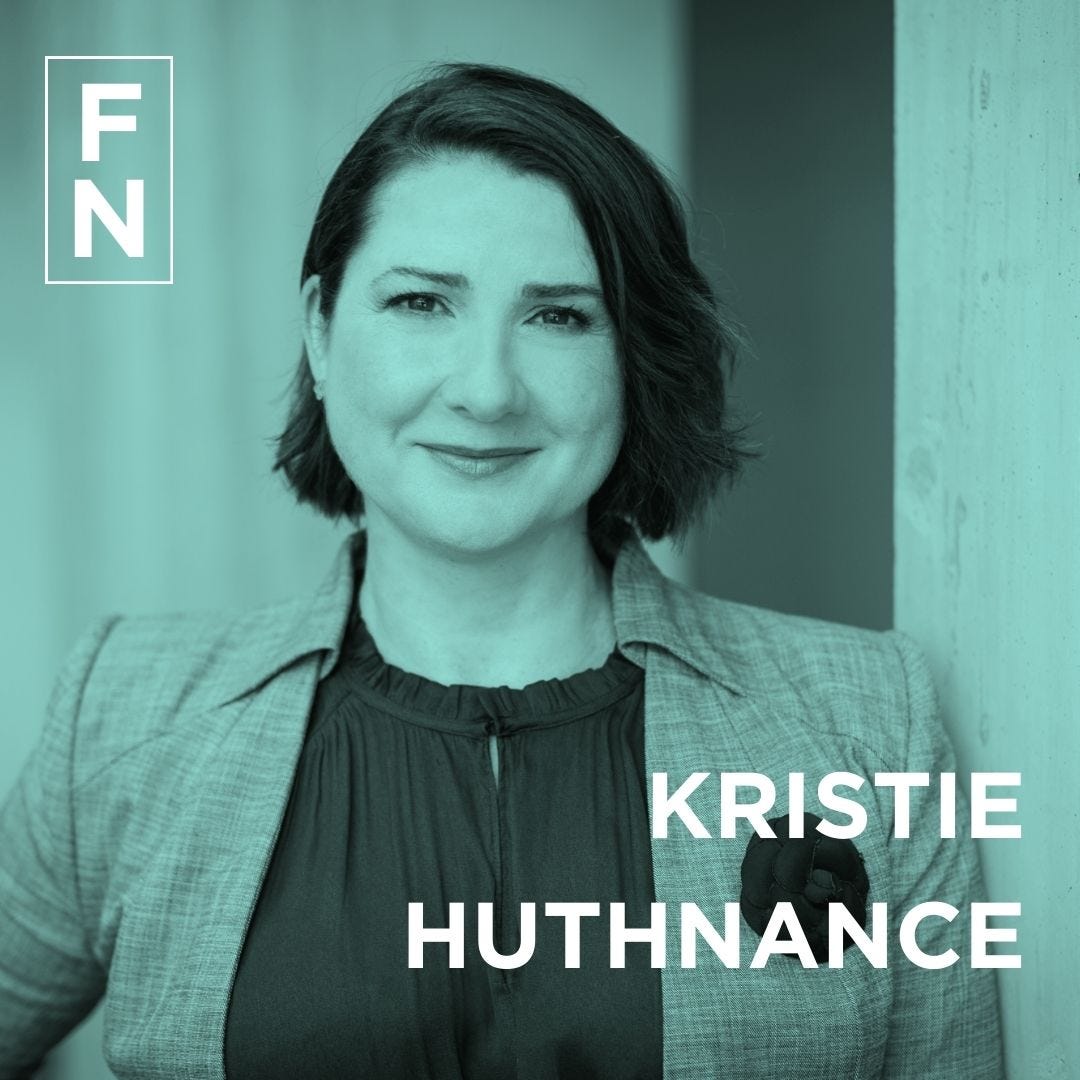

Thank you for this excellent read, Nathan. It resonated with me deeply. I'm definitely in the 'valley of despair' stage of the Emotional Cycle of Change, and that is just from the journey to try get INTO the sustainability profession - I haven't even been able to get the job yet! This piece has been an inspiration to 'keep fighting the good fight' even despite my perceived lack of progress. Many thanks :)